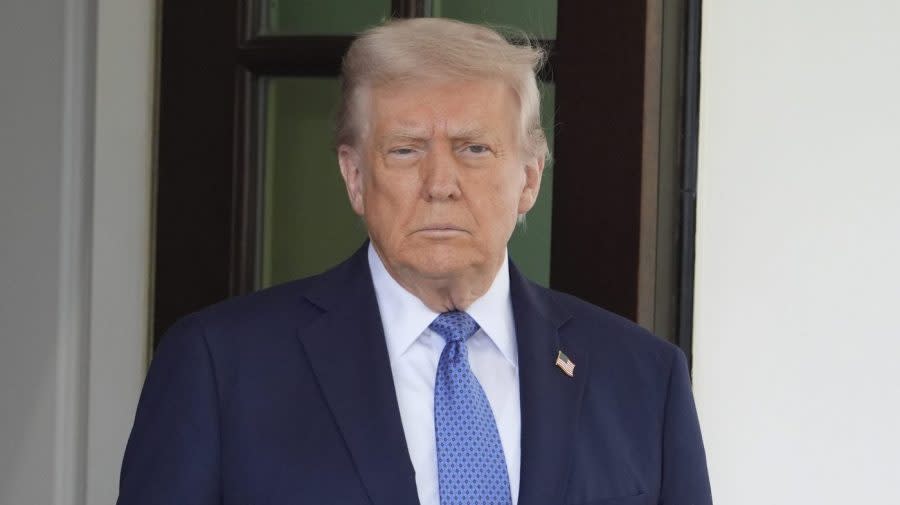Washington, April 25, 2025 – The Europe Today: A federal judge on Thursday temporarily blocked the Trump administration from implementing a controversial provision of its new executive order on elections, halting efforts to require proof of citizenship on the federal voter registration form.
U.S. District Judge Colleen Kollar-Kotelly issued a preliminary injunction, siding with voting rights organizations, Democratic groups, and other plaintiffs who argued that the mandate would cause irreparable harm to voter registration efforts and exceeded the constitutional authority granted to the president.
The judge’s ruling marks a significant setback for former President Donald Trump, who had introduced the sweeping March executive order to overhaul election procedures, arguing the changes were necessary to restore public trust in the U.S. electoral system. While the court halted the proof-of-citizenship requirement and a related provision requiring public assistance applicants to verify their citizenship before accessing voter registration forms, it allowed other aspects of the order to proceed.
Judge Kollar-Kotelly emphasized that under the U.S. Constitution, the authority to regulate federal elections rests with Congress and the states—not the executive branch. In her 120-page opinion, she stated that the plaintiffs had demonstrated the proposed changes would harm their voter outreach programs and that the government had offered “almost no defense of the President’s order on the merits.”
The decision follows a wave of lawsuits filed by the League of United Latin American Citizens, the League of Women Voters Education Fund, the Democratic National Committee, and several state attorneys general. The plaintiffs contended that Trump’s order undermined the authority of the independent U.S. Election Assistance Commission (EAC), which administers the federal voter registration form and sets voluntary election guidelines.
During an April hearing, attorneys representing the plaintiffs argued that requiring proof of citizenship would make it significantly harder to conduct voter registration drives in public spaces and disproportionately affect eligible voters. Aria Branch, legal counsel for the Democratic National Committee, warned that the order would force voting organizations to divert resources to mitigate voter confusion and procedural changes.
In contrast, legal representatives for the Trump administration contended that the order was not yet in effect and thus did not merit judicial intervention. However, the judge disagreed, determining that a preliminary injunction was necessary to prevent immediate harm.
Notably, the court declined to block other parts of the order, including a directive requiring mail-in ballots to be received by Election Day and provisions opening up voter databases for review by the newly created Department of Government Efficiency, led by billionaire Elon Musk. The judge concluded that these claims were either premature or more appropriately addressed by individual states.
The decision was welcomed by voting rights advocates. Roman Palomares, President of the League of United Latin American Citizens, called the ruling a “victory for voters,” adding that “efforts to silence the voice and votes of the U.S. electorate must not stand.”
Branch echoed the sentiment, describing the ruling as a “victory for democracy and the rule of law over presidential overreach,” while cautioning that “this fight is far from over.”
In response, the Department of Justice’s Civil Rights Division expressed disappointment. “Few things are more sacred to a free society or more essential to democracy than the protection of its election systems,” said Harmeet Dhillon, Assistant Attorney General for Civil Rights.
Donald Palmer, Chair of the Election Assistance Commission, stated that the agency is reviewing the ruling and “will comply with the Judge’s decision.”
The ruling coincided with a public meeting of the EAC’s bipartisan Standards Board in North Carolina, where state and local election officials gathered to assess the potential impacts of Trump’s executive order.
Additional legal challenges to the order remain active. Earlier this month, 19 Democratic attorneys general and officials from states such as Washington and Oregon—which conduct elections entirely by mail—filed lawsuits opposing the measure.
The United States maintains a decentralized election system, with each state and thousands of local jurisdictions responsible for overseeing and administering elections, a principle that Judge Kollar-Kotelly reaffirmed in her ruling.


